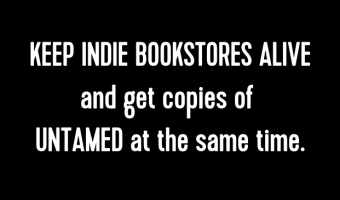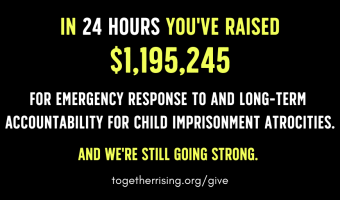
A few weeks ago, I went into Chase’s class for tutoring.
I’d emailed Chase’s teacher one evening and said, “Chase keeps telling me that this stuff you’re sending home is math – but I’m not sure I believe him. Help, please.” She emailed right back and said, “No problem! I can tutor Chase after school anytime.” And I said, “No, not him. Me. He gets it. Help me.” And that’s how I ended up standing at a chalkboard in an empty fifth grade classroom staring at rows of shapes that Chase’s teacher kept referring to as “numbers.”
I stood a little shakily at the chalkboard while Chase’s teacher sat behind me, perched on her desk, using a soothing voice to try to help me understand the “new way we teach long division.” Luckily for me, I didn’t have to unlearn much because I never really understood the “old way we taught long division.” It took me a solid hour to complete one problem, but l could tell that Chase’s teacher liked me anyway. She used to work with NASA, so obviously we have a whole lot in common.
Afterwards, we sat for a few minutes and talked about teaching children and what a sacred trust and responsibility it is. We agreed that subjects like math and reading are the least important things that are learned in a classroom. We talked about shaping little hearts to become contributors to a larger community – and we discussed our mutual dream that those communities might be made up of individuals who are Kind and Brave above all.
And then she told me this.
Every Friday afternoon Chase’s teacher asks her students to take out a piece of paper and write down the names of four children with whom they’d like to sit the following week. The children know that these requests may or may not be honored. She also asks the students to nominate one student whom they believe has been an exceptional classroom citizen that week. All ballots are privately submitted to her.
And every single Friday afternoon, after the students go home, Chase’s teacher takes out those slips of paper, places them in front of her and studies them. She looks for patterns.
Who is not getting requested by anyone else?
Who doesn’t even know who to request?
Who never gets noticed enough to be nominated?
Who had a million friends last week and none this week?
You see, Chase’s teacher is not looking for a new seating chart or “exceptional citizens.” Chase’s teacher is looking for lonely children. She’s looking for children who are struggling to connect with other children. She’s identifying the little ones who are falling through the cracks of the class’s social life. She is discovering whose gifts are going unnoticed by their peers. And she’s pinning down- right away- who’s being bullied and who is doing the bullying.
As a teacher, parent, and lover of all children – I think that this is the most brilliant Love Ninja strategy I have ever encountered. It’s like taking an X-ray of a classroom to see beneath the surface of things and into the hearts of students. It is like mining for gold – the gold being those little ones who need a little help – who need adults to step in and TEACH them how to make friends, how to ask others to play, how to join a group, or how to share their gifts with others. And it’s a bully deterrent because every teacher knows that bullying usually happens outside of her eyeshot – and that often kids being bullied are too intimidated to share. But as she said – the truth comes out on those safe, private, little sheets of paper.
As Chase’s teacher explained this simple, ingenious idea – I stared at her with my mouth hanging open. “How long have you been using this system?” I said.
Ever since Columbine, she said. Every single Friday afternoon since Columbine.
Good Lord.
This brilliant woman watched Columbine knowing that ALL VIOLENCE BEGINS WITH DISCONNECTION. All outward violence begins as inner loneliness. She watched that tragedy KNOWING that children who aren’t being noticed will eventually resort to being noticed by any means necessary.
And so she decided to start fighting violence early and often, and with the world within her reach. What Chase’s teacher is doing when she sits in her empty classroom studying those lists written with shaky 11 year old hands – is SAVING LIVES. I am convinced of it. She is saving lives.
And what this mathematician has learned while using this system is something she really already knew: that everything – even love, even belonging – has a pattern to it. And she finds those patterns through those lists – she breaks the codes of disconnection. And then she gets lonely kids the help they need. It’s math to her. It’s MATH.
All is love- even math. Amazing.
Chase’s teacher retires this year – after decades of saving lives. What a way to spend a life: looking for patterns of love and loneliness. Stepping in, every single day- and altering the trajectory of our world. 
TEACH ON, WARRIORS. You are the first responders, the front line, the disconnection detectives, and the best and ONLY hope we’ve got for a better world. What you do in those classrooms when no one is watching- it’s our best hope.
Teachers- you’ve got a million parents behind you whispering together: “We don’t care about the damn standardized tests. We only care that you teach our children to be Brave and Kind.  And we thank you. We thank you for saving lives.”
And we thank you. We thank you for saving lives.”
Love – All of Us

Author of the #1 New York Times Bestseller LOVE WARRIOR — ORDER HERE
Join Glennon on Facebook, Twitter, & Instagram









1,987 Comments
I am about to teach high school English. I will use this. By the way, I have been teaching for 32 years.
Nice picture
Tôi thấy bạn thật tuyệt vời
very awesome details
One shape-number puzzle took a whole hour.It reminds me of Common Core. Educating cancerous people is a serious problem. Nobody appears to grasp the gravity of the situation.
Good Article, thanks
Awesome article, I love this articles.
This is very beautiful. Would love to know how to use something similar in the kindergarten class. How to adjust the idea to suite 5-6year olds. Thanks in advance
Good Article.. we absolutely like this .
I adore this concept so much. I found some of the responses to be interesting and would like to know how this is done.
Thank you for the content.
Really good post, thank you.
Thank you
thanks
this sociometric exercise was used frequently at Discovery School in Surrey BC in the 1990s. The results always held surprises and were an interesting way to make new partners.